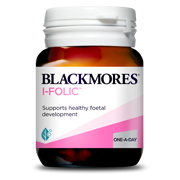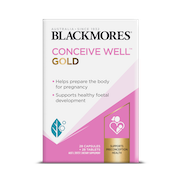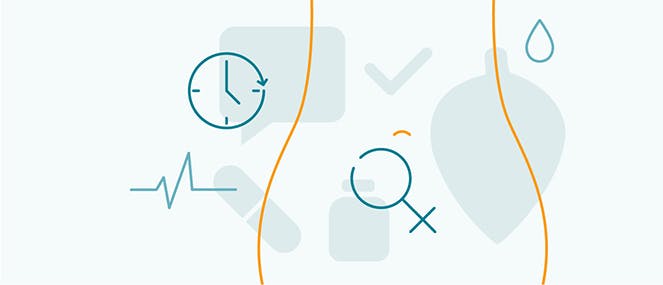- Health hub/
- Resources for Pregnancy and Preconception
Pregnancy & preconception
Information, support and lifestyle advice to help you successfully breastfeed.
Learn techniques & troubleshoot common concerns
Build your support team
Rest and hydrate to maintain supply
Develop a breastfeeding friendly diet
Pregnancy and preconception
Get yourself in tip top baby making shape with our 5 step action plan.
Talk to your health care provider
Adopt conception friendly diet and exercise habits
Stock up on supplements
Learn to manage stress
Look at your partner's health and lifestyle
Pregnancy and preconception
Beyond the Bump: Prioritising Mental Wellness During and After Pregnancy
Feeling overwhelmed? Prioritise your mental wellness during pregnancy & postpartum. Find support, coping mechanisms, & resources for maternal mental health.
How to Choose a Prenatal Vitamin & Why It Matters?
It is very common for pregnant mothers to need to lean on a prenatal vitamin during this time. Explore the different types and find the best one for you.
Pregnancy and preconception
Blackmores I-Folic™
A combination of iodine and folic acid, both important preconception & pregnancy nutrients.
Always read the label and follow the directions for use. Read the warnings below before purchase.
$24.99
One bottle will provide you with a 5-month supply of these two essential nutrients.
Potassium iodide (iodine 150 microgram) 196.2 microgram
Folic acid 500 microgram
Dosage
- Always read the label and follow the directions for use
- Supplements may only be of assistance if dietary intake is inadequate
- Advise your doctor of any medicine you take during pregnancy, particular in your first trimester
- Do not exceed the stated dose except on medical advice. If you have had a baby with a neural tube defect/spina bifida, seek specific medical advice
- Always talk to your health professional before taking multiple products for pregnancy
- Not to be taken with Blackmores Conceive Well Gold, Blackmores Pregnancy & Breast-Feeding Gold, Blackmores Folate, or other folic acid containing supplements
- If you have any pre-existing conditions, or are on any medications always talk to your health professional before use
- Some products should be ceased at least two weeks before any elective surgery, please confirm with your health professional
Pregnancy and preconception
Blackmores Conceive Well™ Gold
A formulation of essential nutrients to help prepare for healthy conception.
Always read the label and follow the directions for use. Read the warnings below before purchase.
$47.99
Potassium iodide (iodine 150 microgram) 197 microgram
Folic acid 500 microgram
Cupric sulfate anhydrous (copper 1.3 mg) 3.3 mg
Riboflavin (vitamin B2) 1.5 mg
Thiamine nitrate (thiamine, vitamin B1 1.2 mg) 1.5 mg
Manganese sulfate monohydrate (manganese 5 mg) 15.4 mg
Zinc sulfate monohydrate (zinc 15 mg) 41.6 mg
Nicotinamide 20 mg
Ferrous fumarate (iron 24 mg) 75.4 mg
Pyridoxine hydrochloride (pyridoxine, vitamin B6 41.2 mg) 50 mg
Cyanocobalamin (vitamin B12) 50 microgram
Heavy magnesium oxide (magnesium 200 mg) 350 mg
Ascorbic acid 200 mg
Calcium ascorbic dihydrate (ascorbic acid, vitamin C 300 mg) 363 mg
Total vitamin C 500 mg
Selenomethionine (selenium 65 microgram) 161 micrograms
Biotin 100 microgram
Calcium pantothenate (pantothenic acid, vitamin B5 4.6 mg) 5 mg
Dosage
Adults – Take 1 capsule and 1 tablet once a day, or as professionally prescribed. Take with food. Ideally taken up to six months before conception.
Once you fall pregnant stop using this product and switch to Blackmores Pregnancy and Breast-Feeding Gold.
- Always read the label and follow the directions for use.
- Additional supplements may be needed when you are pregnant, discuss with your individual requirements with your health professional.
- Do not exceed the stated dose except on medical advice. If you have had a baby with a neural tube defect you should seek specific medical advice.
- Do not take while on warfarin therapy without medical advice.
- This medicine contains selenium which is toxic in high doses. A daily dose of 150 micrograms for adults of selenium from dietary supplements should not be exceeded.
- Once you fall pregnant stop using this product and switch to Blackmores Pregnancy & Breastfeeding Gold.
- Advise your doctor of any medicine you take during pregnancy, particularly in your first trimester. If you are concerned about the health of yourself or your baby, talk to your health practitioner.
- If you have any pre-existing conditions, or are on any medications always talk to your health professional before use.
- Some products should be ceased at least two weeks before any elective surgery, please confirm with your health professional.
- WARNING - Stop taking this medication if you experience tingling, burning or numbness and see your healthcare practitioner as soon as possible. (Contains vitamin B6)
- Contains fish, soya bean products and sulfites.
Pregnancy health
When you’re pregnant looking after your health is more important than ever. A healthy diet and lifestyle optimises your own wellbeing and that of your baby, and prepares your body for labour.
Pregnancy and preconception
Blackmores Pregnancy & Breast-Feeding Gold Mini
Blackmores Pregnancy & Breast-Feeding Gold Mini provides 20 important nutrients, including folic acid and vitamin D3, to support women’s and…
Always read the label and follow the directions for use. Read the warnings below before purchase.
$89.99
Concentrated omega-3 triglycerides fish 125 mg
Nicotinamide 4.5 mg
Ascorbic acid (vitamin C) 15 mg
Calcium carbonate (calcium 25 mg) 62.5 mg
Biotin 7.5 µg
Iron (II) glycinate (iron 2.5 mg) 9.25 mg
Zinc sulfate monohydrate (zinc 2.75 mg) 7.62 mg
Heavy magnesium oxide (magnesium 17.5 mg) 29.1 mg
Selenomethionine (selenium 16.25 μg) 40.6 µg
Chromium picolinate (chromium 7.5 µg) 60.5 µg
Thiamine nitrate (vitamin B1 350 µg) 432 µg
Riboflavin (vitamin B2) 350 µg
Calcium pantothenate (pantothenic acid, vitamin B5 1.25 mg) 1.36 mg
Pyridoxine hydrochloride (pyridoxine, vitamin B6 475 µg) 577 µg
Cyanocobalamin (vitamin B12) 0.65 µg
Colecalciferol (vitamin D3 250 IU) 6.25 µg
Folic acid 125 µg
d-alpha-Tocopherol (natural vitamin E 2.61 IU) 1.75 mg
Potassium iodide (iodine 37.5 µg) 49.3 µg
Betacarotene 1.2 mg
Dosage
Adults: Take 2 capsules two times a day, or as professionally prescribed. Take with food. (Total: 4 capsules a day)
- KEEP OUT OF REACH OF CHILDREN.
- Always read the label and follow the directions for use.
- If you are pregnant or breastfeeding, or on warfarin therapy, talk to your health professional before use. If symptoms persist, talk to your health professional.
- Dietary supplements can only be of assistance if dietary intake is inadequate.
- Always talk to your health professional before taking multiple products for pregnancy.
- Do not exceed the stated dose except on medical advice.
- lf you have had a baby with a neural tube defect/spina bifida, seek specific medical advice.
- This product contains selenium which is toxic in high doses.
- A daily dose of150 micrograms for adults of selenium from dietary supplements should not be exceeded. Vitamin supplements should not replace a balanced diet.
- Advise your doctor of any medicine you take during pregnancy, particularly in your first trimester.
- lf you are concerned about the health of yourself or your baby, talk to your health practitioner.
- Store below 30°C in a dry place away from direct sunlight.
- If you have any pre-existing conditions, or are on any medications always talk to your health professional before use.
- Some products should be ceased at least two weeks before any elective surgery, please confirm with your health professional.
- Store below 30°C in a dry place away from direct sunlight.
- Do not use if cap seal is broken or missing.
- Contains sulfites, fish and soya bean products.






